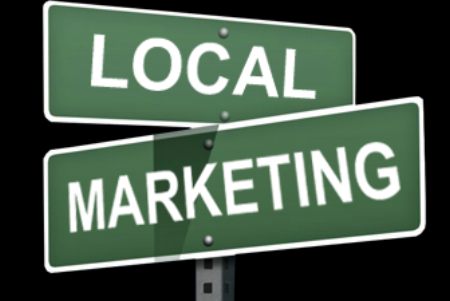Are you prepared to focus more of your marketing activity on local efforts in 2019? If not, this is a good time to start thinking along those lines. Brands of all sizes are focusing more on local marketing, even national- or global-level organizations. Your indirect sales network needs to be looking towards local marketing as well, if you want to keep up!

There are several reasons for this shift towards local marketing, including:
- Increasingly precise targeting of niche audiences
- Attracting jaded buyers who are turned off by impersonal mass-market campaigns
- Helping sales partners reach local buyers
- Improving local SEO placement for inbound marketing
However, for brands which have been mostly focused on national-level campaigns, a shift towards a local focus can be tricky. We’ve seen the same challenges come up with some regularity. Here are a few tips on how to avoid them.
Four Of The Biggest Challenges In Embracing Local Marketing
1. Local SEO results are lacking
Ranking highly on local Google searches can be tricky, particularly for an indirect sales operation. You’ll need to work closely with your top partners, encouraging them to utilize smart search engine optimization that will encourage more local hits. Fortunately, this shouldn’t be a hard sell, since they also benefit from better local SEO.
One thing you can do to help is provide them with more content which is designed to be customizable. Blog articles, for example, should include spaces for them to fill in their location, even their neighborhood, to help encourage better local placement. Video content is even better, assuming they have the capabilities to edit the video to include their own local-focused material.
SEE ALSO: LogicBay Case Study on Partner Marketing
2. Not enough customer data
Many national-level brands have difficulty going local due to a lack of data. After all, the needs and interests of buyers in various markets can be quite different. You won’t get far appealing to a New Yorker with the same pitch you’d use on a Los Angeleno!
For this, communication with your local partners is all-important. Get their advice, and trust their knowledge when it comes to their own back yard. This will go even better if you have centralized data collection, so that – for example – you could compare conversion rates between leads in different areas, to deduce the differences.
3. Disinterested marketing teams
One issue at the moment has to do with how the advertising/marketing industry sees itself. Everyone wants to be working on big national-level campaigns, the sorts of things that can earn a Clio. By contrast, local marketing is often seen as slumming it. Depending on your situation, you may have push back from marketing/advertising teams who don’t want to do smaller-scale campaigns.
One alternative would be to look towards hiring smaller local marketing firms with knowledge of the regions you’re targeting. They’re usually pretty cheap, and they’ll be glad for the business.
4. Social media response time
Social media can be a major part of local marketing. After all, it’s a direct line between a brand and its customers. Unfortunately, it often goes ignored. In fact, according to MarketingLand, 80% of would-be buyers’ social media inquiries never received a response during the holiday shopping season!
It may be time to consider hiring one or more full-time staff members, specifically devoted to maintaining your social media accounts – and with an eye towards responding to every serious inquiry. You may also be able to talk your partners into taking up some of the slack with their own social media presence, if they have one. (And if they don’t, talk to them about why they should.)
Upgrade Your Ecosystem’s Communications And Collaboration With LogicBay
The LogicBay methodology takes cutting-edge Partner Relationship Management software and gives it tight integration with the various third-party systems you need to do business. The result is an all-in-one cloud-based platform that centralizes communications, marketing, data collection, and more. An investment into LogicBay systems can easily streamline your move towards local marketing.
